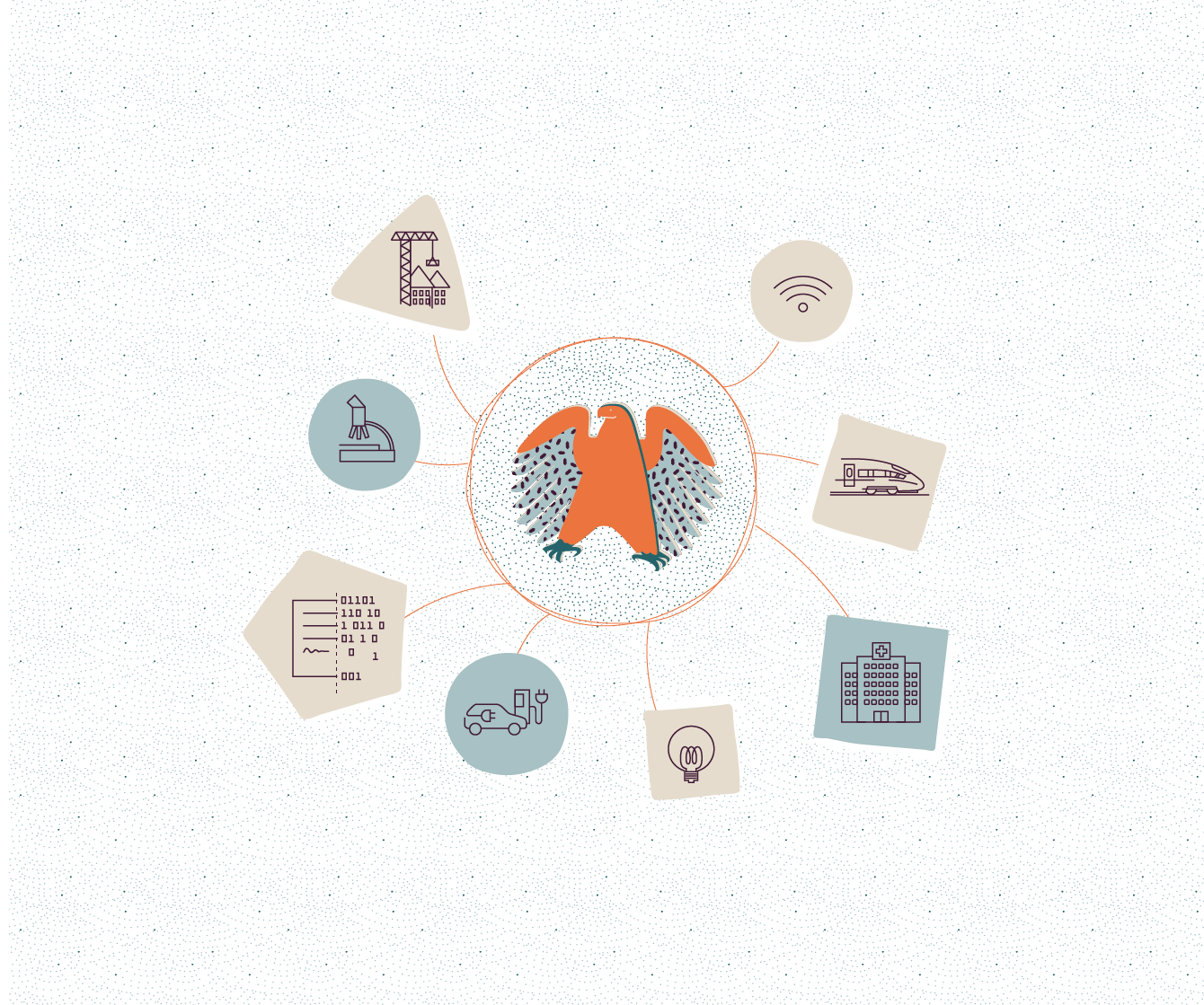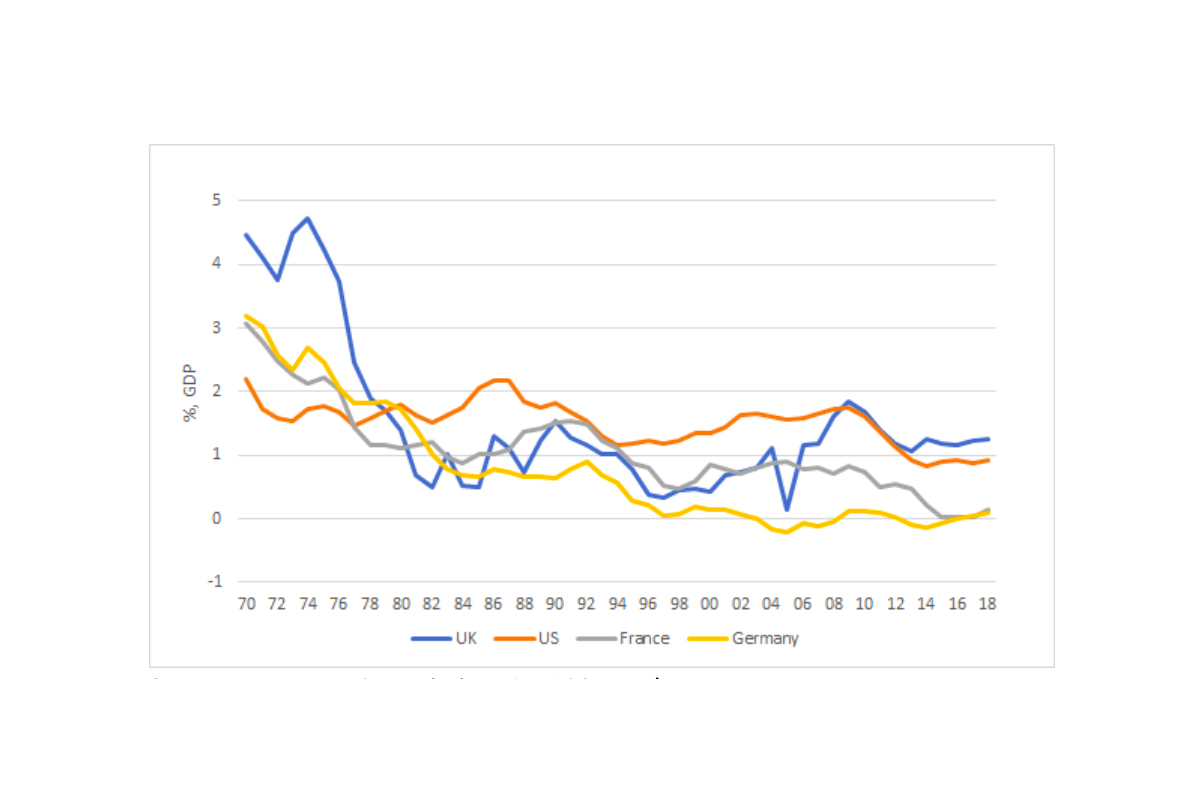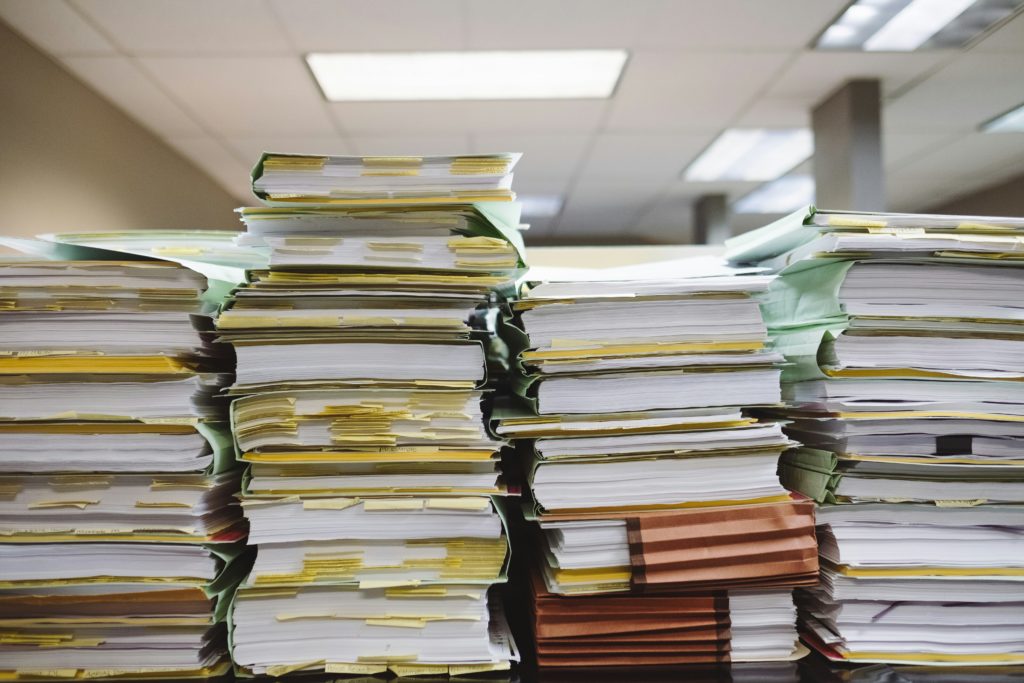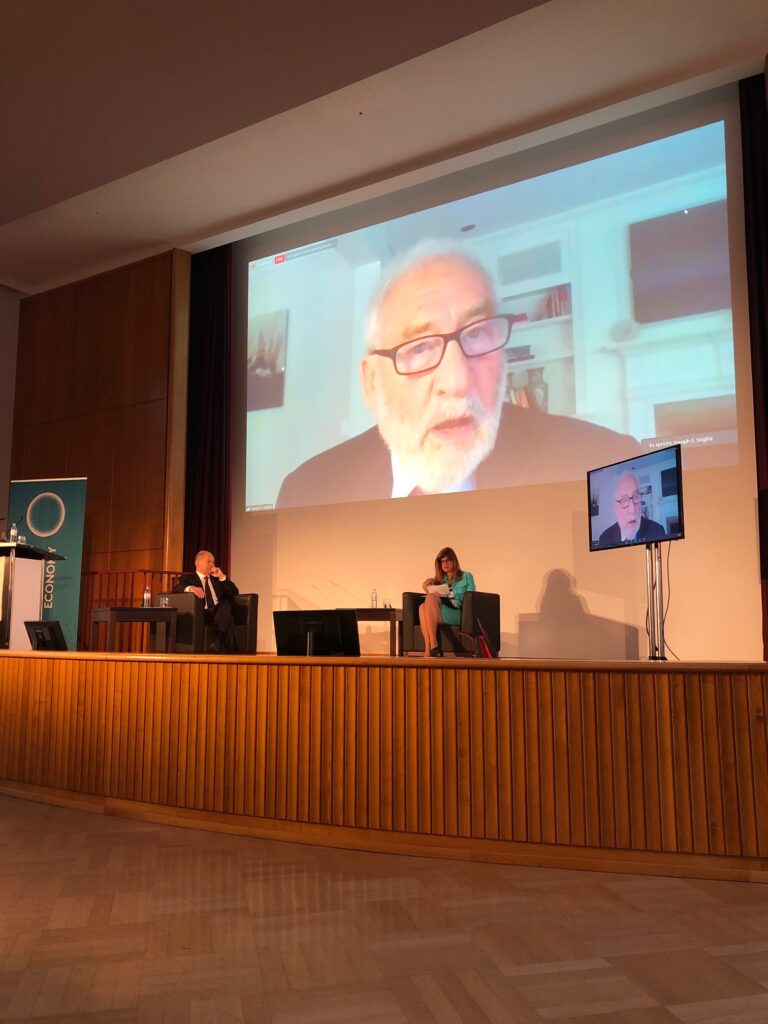






Redefining
the role of
the state
REDEFINING
THE ROLE OF
THE STATE
For decades, there was a consensus that reducing the role of the state and cutting public debt would generate wealth. This contributed to a chronic underinvestment in education and public infrastructure. New research focuses on establishing when and how governments need to intervene to better contribute to long-term prosperity and to stabilize rather than aggravate economic fluctuations.
LATEST NEWS

Cutting Red Tape – But How? New Economy Short Cut with Patrick Bernau, Georg Diez and Johanna Sieben

KNOWLEDGE BASE
REDEFINING
THE ROLE OF
THE STATE
The Challenge
Decaying infrastructure and a lack of investment in education and innovation expose the weaknesses of an overly market-driven paradigm.
What went wrong
Reducing the role of the state in the economy was seen as the best way to ensure high levels of growth.
New Economy in Progress
The challenges of our time require us to rethink the role of the state and the need for a more active fiscal policy.
5 POSSIBLE WAYS THAT ARE DISCUSSED TO REDEFINE THE ROLE OF THE STATE
THE STEEP DECLINE IN NET PUBLIC INVESTMENT

New Economy Working Paper - Challenge-driven economic policy - A new framework for Germany
A new study by Mariana Mazzucato and her team from the Institute for Innovation and Public Purpose at University College London
New Economy Working Paper out – A new paradigm for Germany’s fiscal policy after Corona
A new study by Michael Hüther (IW Köln) and Jens Südekum (DICE) looks into the past and the future of the German debt brake.
New Economy Short Cut with Sebastian Dullien
Sebastian Dullien (IMK) gave an assessment of the impact of the economic stimulus package at the start of our new format "New Economy Short Cuts".
Toward a New Fiscal Constitution
Mariana Mazzucato and Robert Skidelsky call for a new and mission-oriented fiscal constitution. They advocate for new indicators and the implementation of Job Guarantee Programmes.
New Economy Short Cut with Kristian Blickle (New York Fed)
Kristian Blickle will present a new version of his working paper "Pandemics Change Cities: Municipal Spending and Voter Extremism in Germany, 1918-1933".
The way out of the crisis – all news about a possible recovery plan
The German government has decided on an economic stimulus package of 130€ billion. Achim Truger and Michael Hüther evaluated individual measures in advance. Laurence Tubiana and Emmanuel Guerin insist on the importance of the Green Deal for reconstruction.
Corona Workshop Video: Fiscal Policy – Will the Trillions be enough?
Robin Brooks, Frank van Lerven, Antonella Stirati and Shahin Valleé discuss the fiscal capacities of countries hit by the corona virus and lay out what needs to be done next.
Central banks to the rescue? Is this the time for helicopter money?
Corona Workshop: Over the last four decades central banks have been almost exclusively mandated with the task of macroeconomic stabilization. Can they still do their job? We discussed this with Eric Lonergan, Martin Hellwig, Peter Bofinger and Daniela Gabor.
Introduction to The Corona Economic Shock
Introductory remarks by Thomas Fricke and Gerhard Schick on the state of the economy and a plan to cope with the crisis at the Forum Corona workshop.
The Corona Crisis - Is this the time for Helicopter Money?
Marc Adam explains the concept of helicopter money and analyzes the discussion around it. Input for the session on central bank action during the corona crisis.
VI New Paradigm Workshop - The Corona Crisis
How dramatically does the Corona crisis threaten to become economically and financially still? Will the aid be enough? And will the world be the same as before?
Corona Workshop Video: Real Economy Crisis – Towards the Great Corona Depression?
Nicola Brandt, Sebastian Dullien, Stephen Kinsella and Jens Südekum discuss the real-economic effects of the Corona crisis














